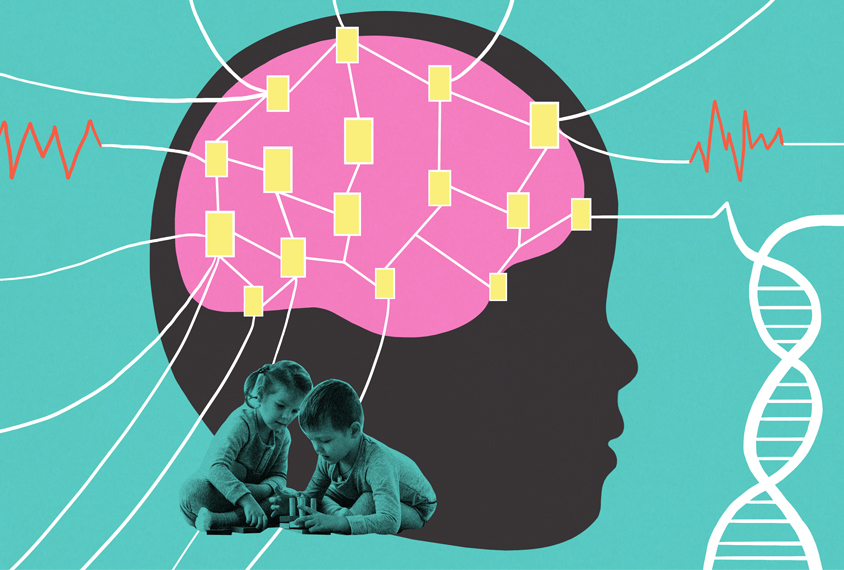Emily Jones is professor of translational neurodevelopment at the Centre for Brain and Cognitive Development at Birkbeck, University of London in the United Kingdom. Her research efforts center on the neurodevelopmental pathways that lead to autism. She is involved with a number of early-intervention studies for infants with siblings with autism and attention deficit hyperactivity disorder.

Emily Jones
Professor
Birkbeck, University of London
From this contributor
Connecting autism-linked genetic variation to infant social behavior
Integrating genetic analyses into studies of babies’ brain development could help us understand how autism-related genes contribute to autism traits.

Connecting autism-linked genetic variation to infant social behavior
Explore more from The Transmitter
Frameshift: Raphe Bernier followed his heart out of academia, then made his way back again
After a clinical research career, an interlude at Apple and four months in early retirement, Raphe Bernier found joy in teaching.

Frameshift: Raphe Bernier followed his heart out of academia, then made his way back again
After a clinical research career, an interlude at Apple and four months in early retirement, Raphe Bernier found joy in teaching.
Organoid study reveals shared brain pathways across autism-linked variants
The genetic variants initially affect brain development in unique ways, but over time they converge on common molecular pathways.

Organoid study reveals shared brain pathways across autism-linked variants
The genetic variants initially affect brain development in unique ways, but over time they converge on common molecular pathways.
Single gene sways caregiving circuits, behavior in male mice
Brain levels of the agouti gene determine whether African striped mice are doting fathers—or infanticidal ones.

Single gene sways caregiving circuits, behavior in male mice
Brain levels of the agouti gene determine whether African striped mice are doting fathers—or infanticidal ones.